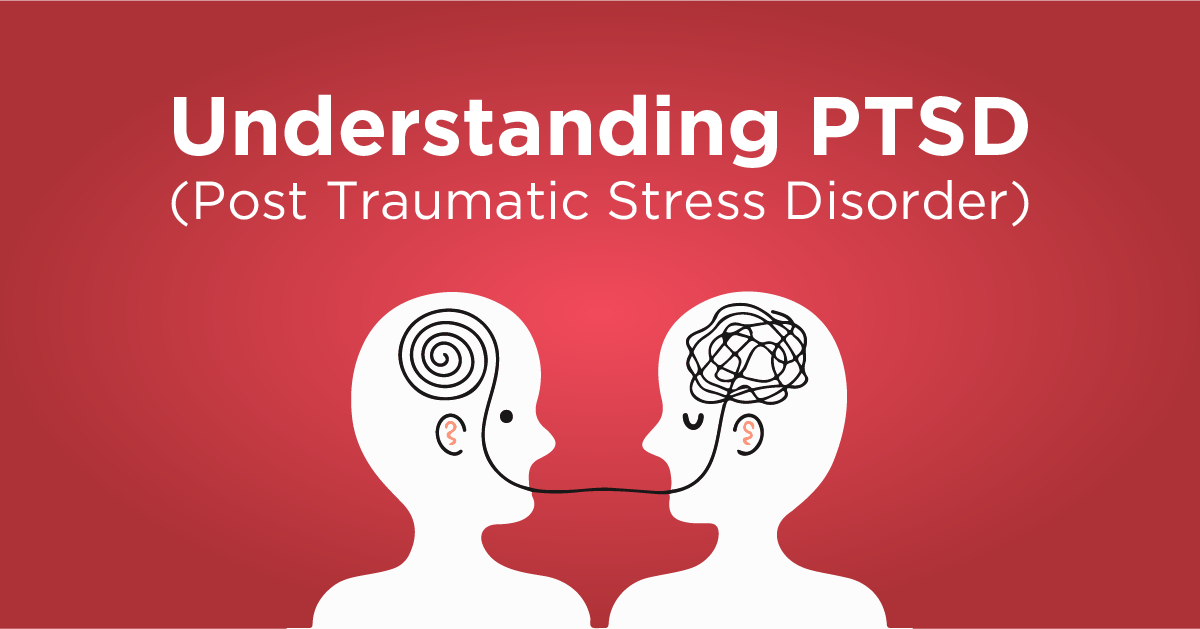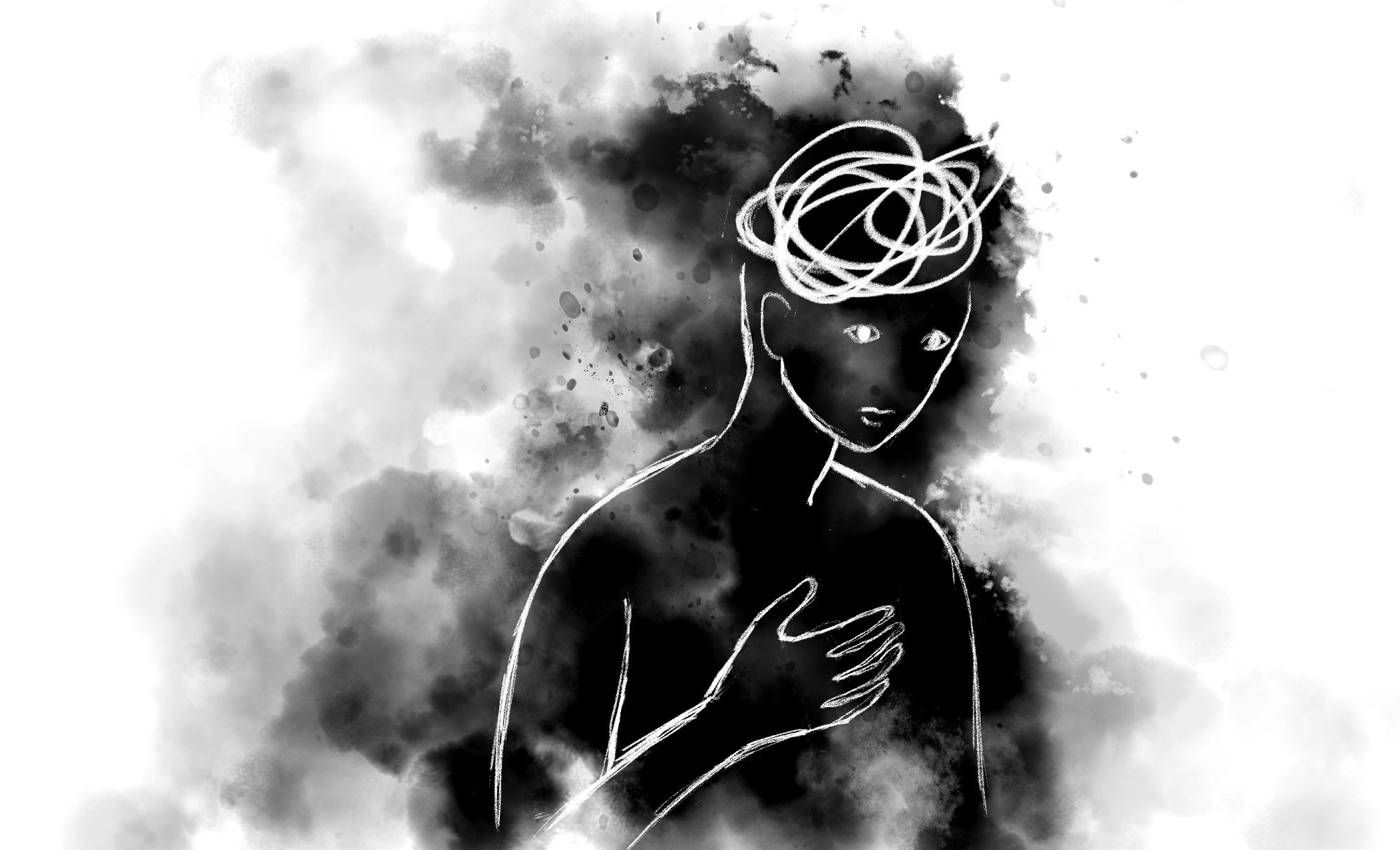Post-traumatic stress is a condition that can occur after an individual experiences a traumatic event that threatens their physical, emotional, or mental well-being. It can range from experiences of violence, accidents, natural disasters, to profound loss. In this article, we will explore the effects of post-traumatic stress and strategies for managing it.

The Impact of Post-Traumatic Stress
- Physical Reactions: Post-traumatic stress can lead to various physical symptoms such as headaches, sleep disturbances, muscle aches, and digestive problems.
- Anxiety Disorders and Depression: Many individuals experiencing post-traumatic stress also suffer from excessive anxiety, overwhelming fear, or depression.
- Flashbacks and Nightmares: Individuals may experience flashbacks or nightmares, where they vividly relive the traumatic event, causing intense emotional distress and disrupting daily functioning.
- Hyperarousal: Individuals with post-traumatic stress may constantly feel on edge, easily startled, or have difficulty concentrating due to heightened arousal levels.
- Avoidance Behavior: Some individuals may avoid reminders of the traumatic event, leading to social withdrawal, isolation, or substance abuse as a coping mechanism.
- Emotional Numbing: Post-traumatic stress can also result in emotional numbing, where individuals experience a reduced ability to experience pleasure or form meaningful connections with others.
Coping Strategies for Post-Traumatic Stress
- Seeking Support: It’s crucial for individuals with post-traumatic stress to seek support from friends, family, or mental health professionals. Talking about their experiences and feelings can help individuals process their trauma and begin the healing process.
- Self-Care: Engaging in self-care activities such as exercise, meditation, or hobbies can help individuals manage stress and improve their overall well-being.
- Healthy Lifestyle: Eating a balanced diet, getting regular exercise, and avoiding alcohol and drugs can support mental and emotional health, making it easier to cope with post-traumatic stress.
- Therapy: Cognitive-behavioral therapy (CBT) and eye movement desensitization and reprocessing (EMDR) are effective therapeutic approaches for treating post-traumatic stress. These therapies help individuals reframe their thoughts, process traumatic memories, and develop coping skills to manage symptoms.
- Medication: In some cases, medication may be prescribed to help manage symptoms of post-traumatic stress, particularly anxiety or depression. However, medication should be used in conjunction with therapy and other coping strategies for optimal results.
- Mindfulness and Relaxation Techniques: Practicing mindfulness, deep breathing, or progressive muscle relaxation techniques can help individuals reduce stress, calm their minds, and improve their ability to cope with post-traumatic stress.
- Creating a Safety Plan: Developing a safety plan that includes strategies for managing triggers, identifying sources of support, and knowing when to seek help can empower individuals to navigate difficult situations and prevent crises.
Conclusion
Post-traumatic stress can have a profound impact on individuals’ lives, affecting their mental, emotional, and physical well-being. However, with proper support and coping strategies, individuals can learn to manage their symptoms and regain a sense of control over their lives. By seeking help, practicing self-care, and developing healthy coping mechanisms, individuals can overcome the challenges of post-traumatic stress and move forward on the path to healing and recovery.
Coping Strategies and Treatment for Post-Traumatic Stress Disorder (PTSD)
Post-Traumatic Stress Disorder (PTSD) is a mental health condition that can develop after experiencing or witnessing a traumatic event. Symptoms may include flashbacks, nightmares, severe anxiety, and uncontrollable thoughts about the event. While PTSD can be debilitating, there are various coping strategies and treatments available to help individuals manage and recover from this condition.

Coping Strategies for PTSD:
- Seeking Support: Talking to friends, family members, or a therapist about your experiences and feelings can provide emotional support and validation.
- Self-Care: Engage in activities that promote relaxation and well-being, such as exercise, meditation, yoga, or spending time in nature.
- Healthy Lifestyle: Maintain a balanced diet, get regular exercise, prioritize sleep, and avoid alcohol, drugs, and caffeine, which can exacerbate symptoms.
- Mindfulness and Relaxation Techniques: Practice deep breathing, progressive muscle relaxation, or mindfulness meditation to reduce stress and anxiety.
- Creative Expression: Explore creative outlets such as writing, art, music, or dance as a means of processing emotions and expressing yourself.
- Establishing Routine: Establishing a structured daily routine can provide stability and predictability, which can help alleviate symptoms of PTSD.
- Limiting Triggers: Identify and minimize exposure to triggers that exacerbate symptoms, such as certain places, people, or activities.
Treatment Options for PTSD:
- Therapy: Psychotherapy, particularly Cognitive Behavioral Therapy (CBT) and Eye Movement Desensitization and Reprocessing (EMDR), are highly effective treatments for PTSD. These therapies help individuals reframe negative thoughts, process traumatic memories, and develop coping strategies to manage symptoms.
- Medication: Antidepressants, particularly selective serotonin reuptake inhibitors (SSRIs) and serotonin-norepinephrine reuptake inhibitors (SNRIs), may be prescribed to help manage symptoms of depression and anxiety associated with PTSD.
- Exposure Therapy: This form of therapy involves gradually exposing individuals to traumatic memories or situations in a safe and controlled environment, allowing them to process and desensitize their responses over time.
- Support Groups: Joining a support group for individuals with PTSD can provide a sense of community, validation, and understanding, as well as opportunities to share experiences and coping strategies.
- Alternative Therapies: Some individuals may find relief from symptoms through alternative therapies such as acupuncture, massage therapy, or equine therapy.
- Service Animals: Service dogs trained to assist individuals with PTSD can provide emotional support, companionship, and assistance with tasks such as grounding techniques during times of distress wdbos login.
Conclusion:
While recovering from PTSD can be a challenging journey, it’s essential to remember that healing is possible with the right support and treatment. By utilizing coping strategies, seeking professional help, and exploring various treatment options, individuals can learn to manage their symptoms, regain a sense of control, and reclaim their lives from the grip of trauma. If you or someone you know is struggling with PTSD, don’t hesitate to reach out for help and support.
Preventing Post-Traumatic Stress: Strategies for Resilience
Post-Traumatic Stress Disorder (PTSD) can develop after experiencing or witnessing a traumatic event, but there are steps individuals can take to reduce their risk and build resilience. By implementing preventive measures and fostering a supportive environment, individuals can mitigate the impact of trauma and promote psychological well-being. Here are some strategies for preventing post-traumatic stress:

Building Resilience:
- Developing Coping Skills: Cultivate healthy coping mechanisms such as problem-solving, emotion regulation, and seeking social support to manage stress and adversity effectively.
- Strengthening Social Support: Build and maintain strong connections with friends, family, and community members who can offer emotional support and practical assistance during difficult times.
- Practicing Self-Care: Prioritize self-care activities that promote physical and emotional well-being, including exercise, relaxation techniques, adequate sleep, and healthy lifestyle habits.
- Fostering Optimism: Cultivate a positive outlook by focusing on strengths, gratitude, and opportunities for growth, even in the face of adversity.
Preparedness and Prevention:
- Educating Yourself: Learn about common responses to trauma, PTSD symptoms, and available resources for support and treatment to better recognize and respond to potential stressors.
- Developing Coping Plans: Create a plan for managing stress and coping with potential traumatic events, including identifying sources of support, practicing relaxation techniques, and seeking professional help if needed.
- Promoting Safety: Take proactive measures to reduce the risk of experiencing traumatic events, such as following safety guidelines, avoiding high-risk situations, and seeking assistance in potentially dangerous situations.
Creating Supportive Environments:
- Promoting Psychological Safety: Foster environments that prioritize psychological safety, open communication, and trust, whether in workplaces, schools, or communities.
- Providing Trauma-Informed Care: Implement trauma-informed practices and policies that recognize the impact of trauma, prioritize safety and empowerment, and offer compassionate support to those affected.
- Reducing Stigma: Challenge stigma surrounding mental health and trauma by promoting awareness, understanding, and acceptance, and encouraging help-seeking behaviors without judgment or discrimination.
Conclusion:
While it may not be possible to prevent all traumatic events, individuals can take proactive steps to reduce their risk of developing post-traumatic stress and build resilience in the face of adversity. By fostering coping skills, strengthening social support networks, promoting safety, and creating supportive environments, we can collectively work towards preventing and mitigating the impact of trauma on individuals and communities. Remember that seeking help and support is a sign of strength, and resources are available for those who need assistance in coping with trauma and promoting healing.
Read More Article About “Pokhran 2024: India’s Bold Stride in Defense Mastery“

